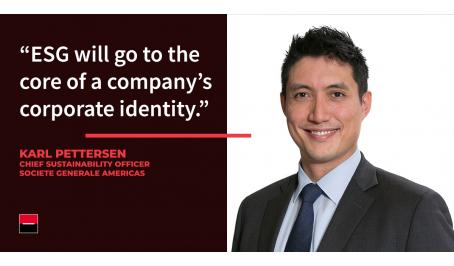- Membership
- The NY Chapter
- Our Career Services
- Committees
- National FACC Network
Does ESG Challenge the Notion of Free Markets?
Member news | November 04, 2020
Any ESG conversation today touches on many subjects at once: climate change, Covid-19, social and racial justice, and what the “right” response needs to be. It is fair to say that the events of 2020 have caused a number of ESG topics to intersect more directly. The connection between climate change and societal ills now appears undeniable. We also see more evidence of the systemic risk ESG poses to financial markets, bringing heightened urgency to the question of how adaptable and effective financial tools really are in addressing the nuances of ESG.
It can seem that ESG eludes definition and that it takes on different meanings in different parts of the world, leaving all of us unsure how to respond. So, it can be tempting to just leave the wisdom of markets to figure it all out.
But not so fast. While there is definitely a place for market mechanisms, we need to ask ourselves whether there is something that makes ESG different. Two distinctions come to mind. First, ESG aspires to directly resolve issues in the physical world; it is not a theoretical construct that can be resolved with abstractions or ratios or price curves. Second, the entire exercise of ESG is meant to shine a spotlight on externalities and unforeseen shocks that have historically been captured poorly by market models. In other words, a business-as-usual market approach likely misses the point.
In crafting a market response to ESG, we need to contend with several realities. First, markets are not absolutes, but emerge from local laws and policies, history, and even geography. In other words, market prowess is only as good as its incentives, and these reflect specific goals. If incentives are not set to reduce carbon, markets won’t reduce carbon. Next, market efficiency is not enough – ESG change needs to be equitable as well as efficient. Third, a more sophisticated language is needed and will take time to develop. Fourth, because of the moral and human imperatives at stake, there is little room for theater in ESG. Performative ESG won’t cut it; it needs to be substantive. Finally, as the pandemic response has made eminently clear, we need to re-think our pre-conceived notions of private and public responses to societal threats, whether in terms of funding or innovation.
ESG requires finding a balance among a company’s stakeholders, between transition and restraint, now and tomorrow, and between the constituent E, S, and G components. Navigating ESG therefore requires both conviction and flexibility. For example, the financial sector will need a response that is both muscular and nuanced as it spends trillions to fund new technologies and transform ageing business models on a global scale. But the raft of new instruments this will create must not lead to the type of “financialization” that only blurs and possibly increases risk over time by emphasizing the tradeability of instruments over their real-world benefit.
Similarly, financial institutions need to strike the balance between promoting rapid change without creating dislocation either in their own businesses, their client bases, or in their ability to support a global economy in the midst of a pandemic-induced shock. None of this is business as usual.
As a systemically important financial institution with a deep dedication to the energy transition, Societe Generale engages in all these discussions daily and across the globe, whether in terms of policies, asset allocation, product structuring, and analytical thought leadership. The potential of the financial markets to power ESG transformation is awesome, but we also know these are complex subjects that need to be approached with caution and near-surgical precision.
Novel ESG topics ultimately demand more cooperation and communal thinking to yield better results. ESG remains a discovery process for everyone involved, and we discover more when we put our heads together. It is with this mindset that we look forward to an exciting exchange with our co-panelists at the OneForum of the French-American Chamber of Commerce. Join us for this discussion on November 18 at 3 PM EST.
This article has been provided by Karl Pettersen, #OneForum2020 Speaker and Chief Sustainability Officer, Americas, of our Gold Sponsor company, Société Générale. The FACC-NY thanks you for your participation and support in helping us bring this multi-day forum to our members.
Société Générale is one of the leading European financial services groups. Based on a diversified and integrated banking model, the Group combines financial strength and proven expertise in innovation with a strategy of sustainable growth, aiming to be the trusted partner for its clients, committed to the positive transformations of the world.


